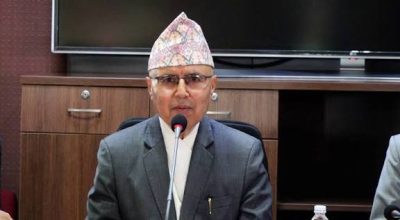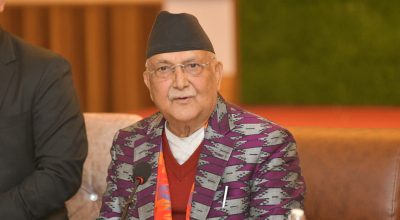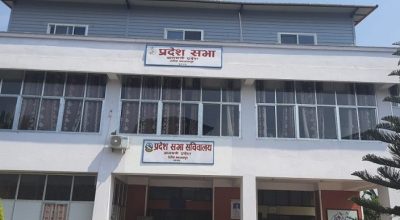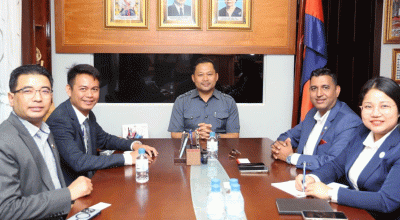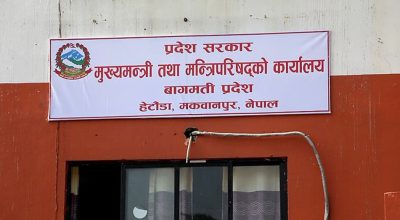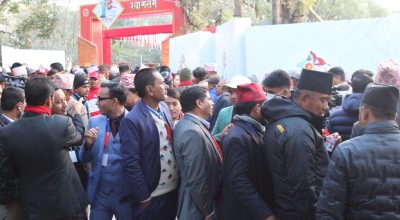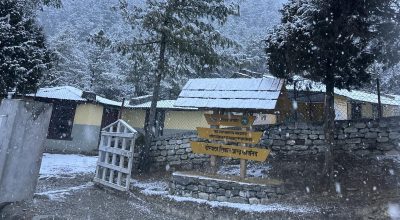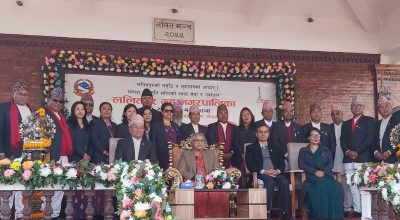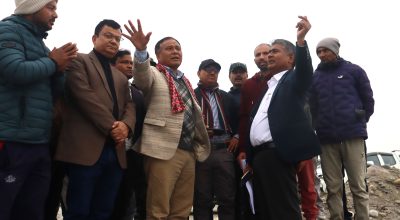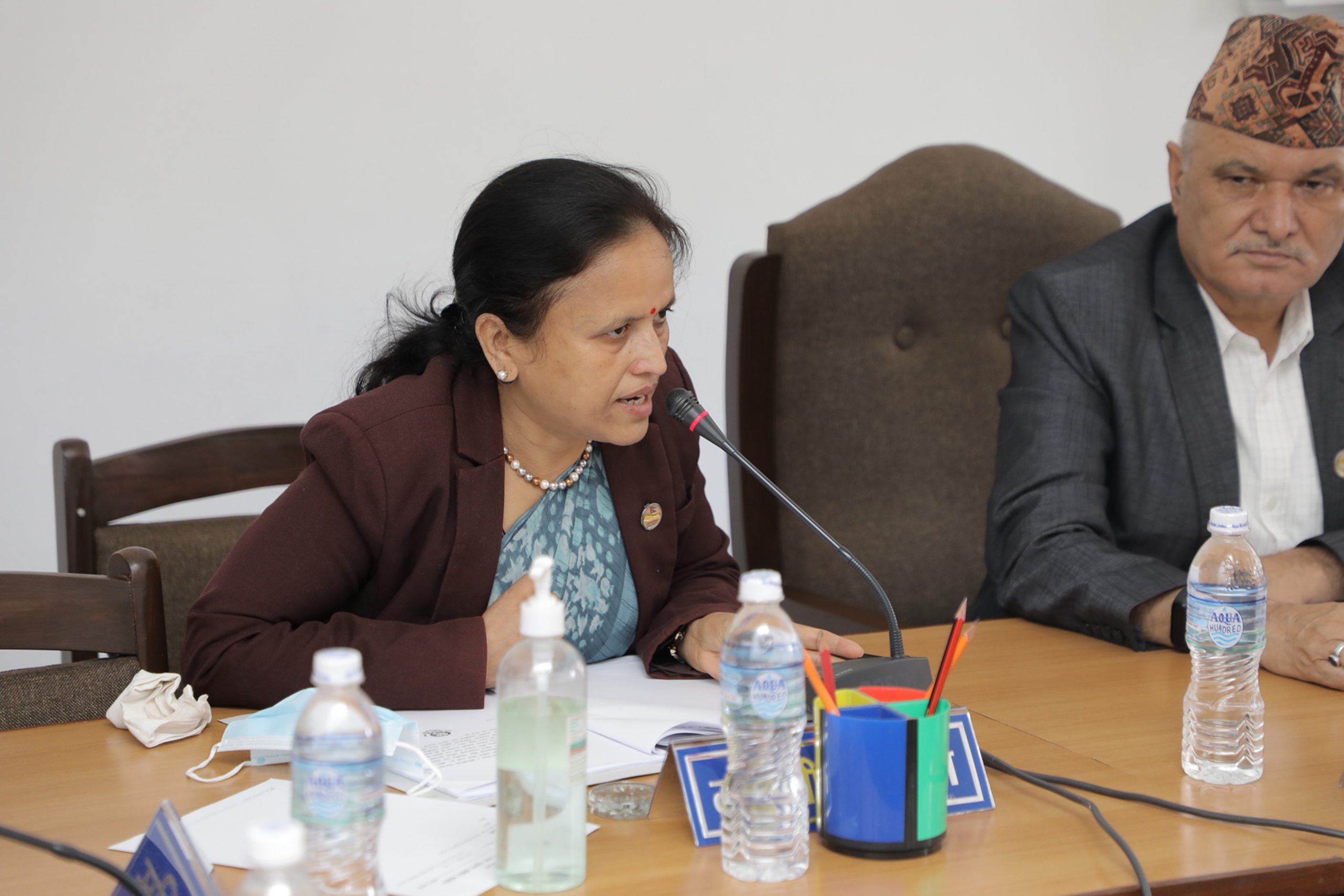
Kathmandu, Sept 26: Minster for Communications and Information Technology Rekha Sharma said the Public Service Broadcasting (PSB) bill has been taken ahead to make public media accountable and responsible towards the people.
During deliberations on the bill outlined to amend and integrate the law relating to public service broadcasting in the Education, Health and Technology Committee under the House of Representatives (HoR) on Tuesday, Minister Sharma said the public media should not be limited to an institution merely adoring government’s activities.
“Media is not a group of people chanting hymns. The government’s motive is to put in place a law to hold media to account to the people. Much have been changed since the formulation of the bill so it should be changed accordingly”, she further noted.
The government put forward the law formulation to transform the state broadcasters – Radio Nepal and Nepal Television – to a public service broadcaster, Sharma said, adding the objective is to operate media in a healthy, impartial and responsible manner by embracing democratic values, norms and independent journalism.
Ministry Secretary Krishna Bahadur Raut said the bill has entered in to the parliament after a long joint discussion and dialogue with Radio Nepal and Nepal Television as per the PSB concept.
“A draft was made for the formulation of a new law on PSB so as to enable the constitutionally-guaranteed Right to Information and Freedom of Expression and Opinion”, he further said.
The government has adopted a perspective to make citizenry informed by transforming the two institutions in to a public broadcaster.
Executive Chairman of the Rastriya Samachar Samiti (RSS) Dharmendra Jha said voice has been raised in support of people’s participation and oversight rather than government’s role in operating media on its own.
He said the bill was drafted to serve the objective of running Radio Nepal and Nepal Television in an integrated way. “It is equally important to take into consideration the staff management, financial assurance for operations, expansion of access, independence, neutrality and inclusion as the state-owned broadcasters are to be transformed rather not a merger”, Jha added.
The proposed broadcasting institution would manage the existing government institutions not the private sector, he clarified, adding it is the state responsibility to unobtrusively reach out information and education to the people.
He recommended bringing the bill to a conclusion without any delay.
Another expert, former Chairperson of Nepal Television Dr Mahendra Bista said the key objective was to transform the Radio Nepal and Nepal Television to a public serving broadcaster.
“There should be clarity on the preamble of the bill besides rethinking on the naming of the PSB, institutional autonomy and division of labour. Special attention should be paid on the appointment of the officials and budgetary aspects”, he added.
Also speaking on the occasion, HoR members, including Badri Pandey, Sumana Shrestha, Bidya Bhattarai, Dr Toshima Karki, Shambhu Hajara, Deepa Sharma, Chhabilal Biswokarma and Dr Chandra Bhandari highlighted the need to liberate PSB from political interference and develop it as a common media platform.
Underscoring the need of a public service broadcasting media under government purview for imparting authentic information, they said journalism should be multi-dimensional and neutral.
Committee members further said there was an ardent need of assuring free, healthy, and authentic information flow when people were still being deprived of access to information.
The bill having 30 clauses has proposed several forward-looking provisions related to funding, motive, people’s access and institutional mechanisms. RSS





